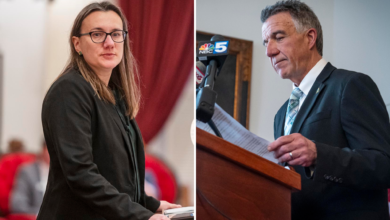Property
India, US ink pact to prevent illegal trafficking of ‘cultural property’, aid in their retrieval | India News

NEW DELHI: India and the United States of America on Friday signed the first ever bilateral ‘Cultural Property Agreement‘ (CPA) that aims to prevent illegal trafficking of cultural property and retrieval of antiquarian objects to their place of origin. The agreement will be helpful in quick seizure of Indian antiquities at US Customs and “smooth repatriation” back to India.
Asserting that this agreement is in line with PM Narendra Modi led govt’s commitment towards adopting a proactive approach towards bringing back Indian artifacts from various parts of the world, culture and tourism minister Gajendra Singh Shekhawat said, “India has repatriated 358 antiquities since 1976, out of these 345 have been retrieved since 2014.”
According to officials the maximum number have been brought back from the US and now this agreement is seen as a big step up to prevent illegal trade and simplify the process by which looted and stolen antiquities are returned.
The agreement was signed by secretary culture Govind Mohan and US ambassador to India Eric Garcetti on the sidelines of the Unesco World Heritage Committee being hosted for the first time in India at Bharat Mandapam in the national capital. India joins the ranks of 29 countries who have already signed the agreement with the US.
As many as 262 antiquities were handed over to India by the USA during PM Modi’s state visit. Shekhawat said there are still over 290 items that are lying in the US and are ready to be repatriated.
On the agreement, Garcetti stated that first and foremost this is “about justice – returning to India and to Indians, what is rightfully theirs.” Secondly, it’s about connecting India with the world. Every American and every global citizen deserves to know, see, and experience the culture that we celebrate here today,” he added.
“A large number of antiquities have been smuggled out of India before the ratification of 1970 Unesco Convention, and which are now housed in various museums, institutions and private collections across the world,” the ministry of culture said in a statement while highlighting that illicit trafficking of cultural property is a longstanding issue that has affected many countries.
Asserting that this agreement is in line with PM Narendra Modi led govt’s commitment towards adopting a proactive approach towards bringing back Indian artifacts from various parts of the world, culture and tourism minister Gajendra Singh Shekhawat said, “India has repatriated 358 antiquities since 1976, out of these 345 have been retrieved since 2014.”
According to officials the maximum number have been brought back from the US and now this agreement is seen as a big step up to prevent illegal trade and simplify the process by which looted and stolen antiquities are returned.
The agreement was signed by secretary culture Govind Mohan and US ambassador to India Eric Garcetti on the sidelines of the Unesco World Heritage Committee being hosted for the first time in India at Bharat Mandapam in the national capital. India joins the ranks of 29 countries who have already signed the agreement with the US.
As many as 262 antiquities were handed over to India by the USA during PM Modi’s state visit. Shekhawat said there are still over 290 items that are lying in the US and are ready to be repatriated.
On the agreement, Garcetti stated that first and foremost this is “about justice – returning to India and to Indians, what is rightfully theirs.” Secondly, it’s about connecting India with the world. Every American and every global citizen deserves to know, see, and experience the culture that we celebrate here today,” he added.
“A large number of antiquities have been smuggled out of India before the ratification of 1970 Unesco Convention, and which are now housed in various museums, institutions and private collections across the world,” the ministry of culture said in a statement while highlighting that illicit trafficking of cultural property is a longstanding issue that has affected many countries.




